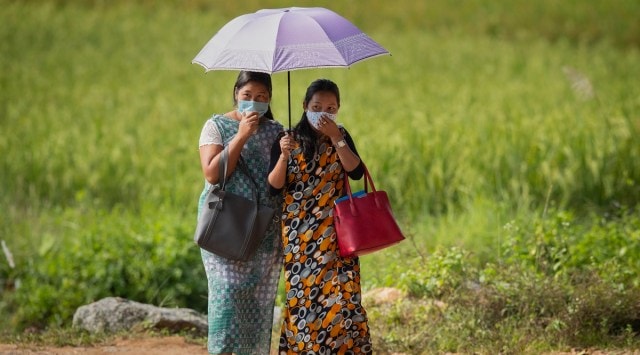- India
- International
Meghalaya: District council to introduce Bill changing age-old Khasi matrilineal inheritance custom
The Khasis are a matrilineal society and trace inheritance and descent through the mother's clan. If the Bill is put into effect, it would make a rare, significant alteration in an age-old, tribal practice of Meghalaya.
 In the Khasi custom, the youngest daughter inherits all the property of the parents. (AP)
In the Khasi custom, the youngest daughter inherits all the property of the parents. (AP)A district autonomous council in Meghalaya is attempting to modify a customary practice of inheritance of the Khasi tribe in which the youngest daughter of the family is bequeathed the full share of parental property.
The Khasi Hills Autonomous District Council (KHADC), an autonomous body under the Sixth Schedule of the Constitution, is scheduled to introduce the Khasi Hills Autonomous District Khasi Inheritance of Property Bill, 2021, for “equitable distribution” of parental property among siblings – both male and female – in the autumn session of the Council on November 8.
The Khasis are a matrilineal society and trace inheritance and descent through the mother’s clan.
The 'custodian'
In the matrilineal Khasi community, lineage and inheritance is traced through the daughter. In most Khasi families, ancestral property is bequeathed to the youngest daughter (khatduh) of the family, who becomes the “custodian” of the land, and takes over all responsibilities associated with the land, including taking care of aged parents, unmarried or destitute siblings. Custom also dictates that the khatduh cannot sell the property, without permission of her maternal uncle. Women activists have often pointed out that custodianship is often misconstrued as ownership by the youngest daughter. On the other hand, over the years, a few groups have protested the system of property inheritance, saying it “disinherits” men, and pressed for equitable property distribution between all children in the family.
“In the Khasi custom, the youngest daughter inherits all the property of the parents. As a result, the siblings (not just boys, but eldest girl siblings too), do not get their share,” KHADC chief Titosstarwell Chyne told The Indian Express, adding that it had resulted in a “lot of problems”.
“Many times, boys are not able to take loans because there is no collateral to show. Sometimes, when a couple has no children, and there is no genuine heir, the clan takes over the property, as per custom. It leads to a number of litigations by children against their parents.”

While “equitable distribution” of ancestral property is the “main objective” of the Bill, Chyne said that another provision will let parents decide who they want to will their property to. “One more provision will prevent a sibling from getting parental property if they marry a non-Khasi and accept the spouse’s customs,” he said.
If it is put into effect, the proposed Bill would make a rare, significant alteration in an age-old, tribal practice of Meghalaya.
Commentators in Meghalaya say that it is too early to say whether such a Bill will actually be made into a legislation as the process is long-drawn and may draw opposition. Moreover, even if the KHADC does pass it, Paragraph 12A of the Sixth Schedule says that the right of passing a district council law ultimately rests with the state legislature.
May 01: Latest News
- 01
- 02
- 03
- 04
- 05







































